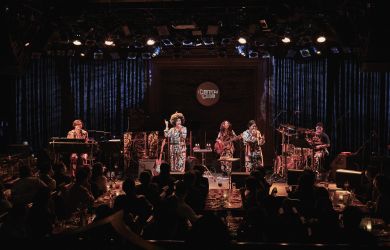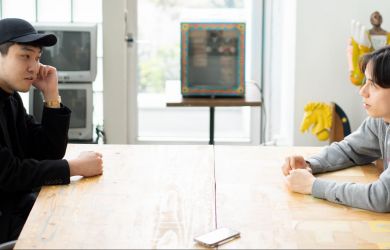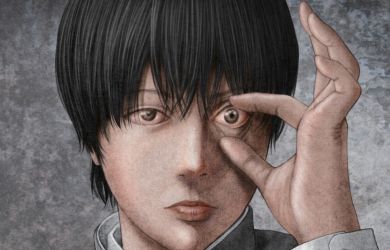
Originally published on metropolis.co.jp on December 2012

SNUBS AND FLUBS
- A survey by the Tokyo-based Lifenet Insurance found that 36.9 percent of Japanese men in their 20s fear they won’t be able to get married because they’re too poor and “not popular with women.”
- Prime Minister Yoshihiko Noda scrapped a planned visit to Russia, in part because President Vladimir Putin is suffering from “serious back pain.”
- Touchy, touchy—the mayor of Hiroshima traveled all the way to Tokyo to ask foreign minister Koichiro Gemba “why the government did not agree to a recent statement by 34 countries to work toward outlawing nuclear weapons.”
- Sentence of the Week: “After winning reelection, US President Barack Obama phoned the leaders of 12 countries to express his desire to continue close cooperation, but Prime Minister Yoshihiko Noda was not among them.” (via Jiji)
NEWS FROM THE LAB
- Scientists at Tokyo University have found that “visual information affects people’s sense of temperature.” They came to this conclusion after conducting experiments that made use of a fake hand and ice cubes (don’t ask).
- Japan’s K supercomputer, developed by Fujitsu and the Riken research institute, lost its status as the world’s fastest processing machine to a pair of US computers.
- On the other hand, Japan ranked first among all Asian nations in terms of something called the Cloud Readiness Index, which measures “preparedness for cloud computing.”
- Among the projects scheduled for Japan’s 54th Antarctica Expedition this winter are “establishing a wind power generation plant and launching a large-size atmospheric observation radar.”
FOREIGN INTRIGUE
- The JNTO says that the number of visitors to Japan from the US has pretty much returned to pre-quake levels.
- A survey conducted by “municipalities with large foreign populations” found that just 79.8 percent of gaikokujin who graduate from Japanese public junior high schools go on to high school, compared to 98.3 percent of Japanese students who do.
- Meanwhile, the number of Japanese exchange students enrolled in universities in the US plunged by 6.2 percent in the wake of the March 11 disaster.
- There are currently 19,966 Japanese college students in the US, compared with about 194,000 from China.
UP & DOWN
- Officials at Tokyo Skytree say they’ll open the tower’s observation decks on January 1 to allow visitors to watch the first sunrise of the year.
- The Japan Business Federation says that, for the first time in three years, winter bonuses at Japanese companies will fall. This year’s average bonus is “just” ¥781,396.
- Officials in Kawasaki have unveiled Japan’s first one-way bicycle lanes.
- The Japanese government won a contract from Bangladesh Bank to produce the country’s 2-taka coin. It’s said to be the first such deal for the Finance Ministry in the postwar era.
AND FINALLY…
- More than 300 cops, firefighters and coast guard members conducted a massive search for the remains of people still missing in the March 11 earthquake, but they failed to turn up a single body.
- The SDF says it will send a field-grade officer to the US in fiscal 2013 to study “cutting-edge cybersecurity technology to boost SDF cyberdefense capabilities.”
- Leading delivery service Sagawa Kyubin has unveiled a pair of three-wheeled electric vehicles for use in “central Kyoto’s maze of narrow alleys.”
- Bottom Story of the Week: “Tea Experts Call for East Asia Friendship” (via The Daily Yomiuri)
Compiled from reports by AP, Japan Today, The Japan Times, Jiji, The Tokyo Reporter, Japan Probe, The Mainichi, Daily Yomiuri, AFP, Reuters and Kyodo





